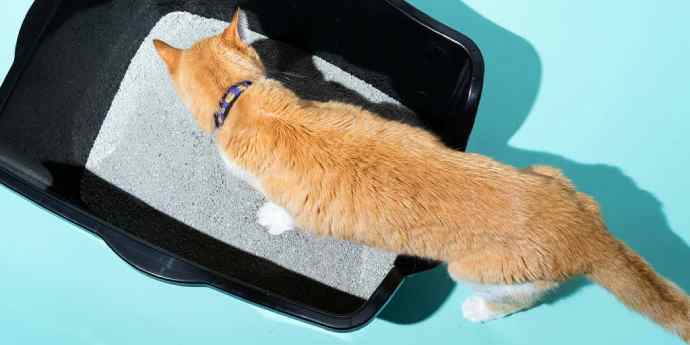 Researchers have identified several risk factors that contribute to cat litter box problems , including:
Researchers have identified several risk factors that contribute to cat litter box problems , including:
urinary tract infections, stress or overstimulation . Greater knowledge on this topic can improve the well-being of animals and owners, as well as prevent pets from being given away or even thrown away. The research group, composed of employees of the University of Helsinki, used a series of survey data on more than 4,000 cats. The surveys were filled in by the owners and contained very detailed questions e.g. about the personality of cats, their origin, health and current living environment. From the dataset, the researchers identified two behavioral traits associated with litter box use: littering outside the litter box for no apparent reason, and avoidance and reluctance to use the litter box due to poor hygiene or quality. They then examined the relationship between 34 different variables, both environmental and personality factors, and the two behavioral traits.
“We wanted to investigate the causes of litter box problems in cats, as it is an extremely common phenomenon that owners find extremely undesirable and very difficult to accept ,” says doctoral student Salla Mikkola , who led the study. She adds that cats are very popular and very common pets around the world, but litter box problems, which are among the most common challenges associated with cat care, often end up eliminating the animal from the home.
“Urinary tract infections and other health issues can be behind these problems, so the first step is always to take your cat to the vet ,” Mikkola points out. However, his team wanted to see what else might be causing the unwanted behavior.
Researchers have determined that another significant risk factor is feline stress. It can be associated with the presence of other animals in the house, a lack of sufficient stimuli or, vice versa, an excess of stimuli, deriving, for example, from too frequent and recurring environmental changes. Also, cats may find the litter box floor or the litter box itself uncomfortable and may therefore go elsewhere to defecate. They may also learn to associate pain when urinating, related to a previous illness, with the litter box, and thus avoid using it.
Problems with the litter box have been particularly common in unneutered cats who use urine to mark their territory. This problem cannot be eliminated in the case of feline breeding alone. Further analysis showed that when it comes to non-health factors, litter box problems are more common in anxious cats.
“Cat personality is of great importance; for example, fearful is associated with both of the undesirable behavioral traits we studied ,” says Prof. Hannes Lohi , veterinarian and lead author of the article. cats and males. Older cats and cats living in households with children were more concerned with the cleanliness of their litter boxes. Among other factors, activity/play, cat sociability, breed, and urinary tract problems were statistically significant.” However regarding the latter, Bengal cats, on average, had the most problems with the litter box, while Siberian cats and Neva Masquerade Siberian cats had the least:
The gregarious cats also had fewer problems with their siblings than the less gregarious animals. Scientists speculate that this personality trait reflects a cat’s ability to live with other pets in the same household, so having it reduces the likelihood of stress caused by this situation and subsequent problems with the litter box.“Due to the nature of the data, direct causal relationships cannot be established based on the results we have collected, but it appears that many problems, including litter problems, could be prevented already during the selection of individuals for breeding. Breeders might, for example, favor unafraid and social individuals for example. The likelihood of litter box problems can also be reduced by keeping the litter box clean and making sure that all cats in the house have their own litter box. ”
The scientific study here: https://avmajournals.avma.org/view/journals/javma/aop/javma.22.10.0441/javma.22.10.0441.xml
#cats #defecate #litter box









